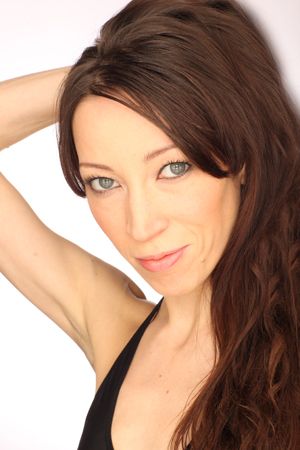
28 April 2024 | |
5 May 2024 |
Tereshkina is an astoundingly powerful technician: the combination of her vertiginously long legs and fearless balance somehow make you feel she is dancing on top of a high mountain.
The Guardian
Tereshkina is absolutely gorgeous, a filigree beauty whose movements extend through her fingertips, a firecracker when throwing off her fiendish fouettés.
The Telegraph
The lead role at the premiere was performed by Viktoria Tereshkina, a ballerina who has the ability to transform herself with rare ease in accordance with the tasks faced, while her stunning plastique responsiveness to the smallest dance nuances and shading make Ms Teryoshkina a premium-class virtuoso.
Kommersant
• People's Artist of Russia (2018)
• Honoured Artist of Russia (2008)
• Prize-winner at the IX Arabesque-2006 International Ballet Competition (Perm)
• Recipient of Ballet magazine’s Spirit of Dance prize in the category “Rising Star” (2006)
• Recipient of the Golden Sofit, St Petersburg’s most prestigious theatre prize, in the category “Best female role in ballet” for the role of the Queen of the Sea in Ondine (2006)
• Recipient of the Golden Sofit in the category “Best female role in ballet” for the role in Approximate Sonata (2005), for the role of Sylvia in Sylvia (2014), for the role of Aspicсia in La Fille du Pharaon (2023)
• Prize-winner at the DANCE OPEN International Ballet Festival in the category “Ms Virtuosa” (2010 and 2011)
• Recipient of the Golden Mask, Russia’s most prestigious theatre prize, for “Best female role in ballet” (Violin Concerto No 2; choreography by Anton Pimonov, 2017).
Born in Krasnoyarsk.
Graduated from the Vaganova Ballet Academy in 2001 (class of Marina Vasilieva).
Joined the Mariinsky Ballet in 2001. Principal since 2006.
Repertoire includes:
Giselle (Giselle, Myrtha Zulma); choreography by Jean Coralli, Jules Perrot and Marius Petipa,
La Fille du Pharaon (Aspicсia); choreography by Marius Petipa reconstructed by Toni Candeloro;
Le Corsaire (Medora); production by Pyotr Gusev after the composition and choreography of Marius Petipa,
La Bayadère (Nikia, Gamzatti); choreography by Marius Petipa, revised version by Vladimir Ponomarev and Vakhtang Chabukiani,
The Sleeping Beauty (Aurora, Gold Fairy, Diamond Fairy); choreography by Marius Petipa, revival of the 1890 production,
Swan Lake (Odette-Odile); choreography by Marius Petipa and Lev Ivanov, revised version by Konstantin Sergeyev,
Raymonda (Raymonda); choreography by Marius Petipa, revised version by Konstantin Sergeyev,
“Paquita” Grand Pas; choreography by Marius Petipa,
Don Quixote (Kitri); choreography by Alexander Gorsky after motifs of the production by Marius Petipa,
Michel Fokine’s ballets Schéhérazade (Zobeide), Swan and The Fire Bird (Fire Bird),
The Fountain of Bakhchisarai (Zarema); choreography by Rostislav Zakharov,
The Nutcracker (Masha); choreography by Vasily Vainonen,
The Young Lady and the Hooligan (the Young Lady); choreography by Konstantin Boyarsky,
Romeo and Juliet (Juliet); choreography by Leonid Lavrovsky,
Spartacus (Phrygia); choreography by Leonid Yakobson,
Yuri Grigorovich's ballets The Stone Flower (The Mistress of the Copper Mountain), The Legend of Love (Mekhmeneh Bahnu),
Grand pas classique; choreography by Viktor Gzovsky;
George Balanchine’s ballets Apollo (Polyhymnia, Terpsichore, Calliope), Serenade, Symphony in C (I. Allegro vivo), A Midsummer Night's Dream (Titania), Theme and Variations, The Four Temperaments, Tchaikovsky Pas de Deux, Jewels (Rubies, Diamonds), Piano Concerto No 2 (Ballet Imperial) and Tarantella,
In the Night; choreography by Jerome Robbins,
Le Jeune Homme et la mort (the Girl); choreography by Roland Petit,
Manon; choreography by Kenneth MacMillan,
Frederick Ashton's ballets Marguerite and Armand (Marguerite), Sylvia (Sylvia),
Études (soloist); choreography by Harald Lander,
Carmen-Suite (Carmen); choreography by Alberto Alonso,
5 Tango's; choreography by Hans van Manen,
Ondine (Queen of the Sea); choreography by Pierre Lacotte,
Anna Karenina (Anna Karenina), Cinderella (Khudishka, Female Dance), The Little Humpbacked Horse (Tsar Maiden), Pierrot Lunaire and Concerto DSCH,
Dolce, con fuoco; choreography by Svetlana Anufrieva,
The Nutcracker (Masha); production by Mihail Chemiakin, choreography by Kirill Simonov,
William Forsythe’s Approximate Sonata and In the Middle, Somewhat Elevated,
The Ring; choreography by Alexei Miroshnichenko,
Aria Suspended (soloist); choreography by Peter Quanz,
Bolero Factory (the Soul); choreography by Yuri Smekalov,
Le Parc (soloist); choreography by Angelin Preljocaj,
Infra; choreography by Wayne McGregor,
The Bronze Horseman (Parasha); choreography by Rostislav Zakharov, Yuri Smekalov,
Paquita (Paquita); choreography by Yuri Smekalov, reconstruction and staging of Marius Petipa's choreography by Yuri Burlaka,
Anton Pimonov's ballets Violin Concerto No 2, The Cat on the Tree,
Concerto for Contrabass; choreography by Yuri Smekalov,
The Four Seasons; choreography by Ilya Zhivoi,
Concert Waltz; сhoreography by Maxim Petrov.
Repertoire also includes:
Diane and Actéon Pas de deux from the ballet La Esmeralda; choreography by Agrippina Vaganova,
The Village Don Juan; choreography by Leonid Yakobson,
Tango-Fugato; choreography by Alexei Miroshnichenko,
Adulte, Dream on; choreography by Ilya Zhivoi,
Elegy. Ophelia; choreography by Ksenia Zvereva.
First performer of the roles of the Queen of the Sea (Pierre Lacotte’s production of Ondine, 2006), the Tsar Maiden (The Little Humpbacked Horse, 2009), Parasha (The Bronze Horseman; production by Yuri Smekalov, 2016) and Paquita (Paquita); staging by Yuri Smekalov and Yuri Burlaka, 2017)
In May 2014 she made her debut with American Ballet Theatre as Nikia in the ballet La Bayadère (Natalia Makarova’s version).
